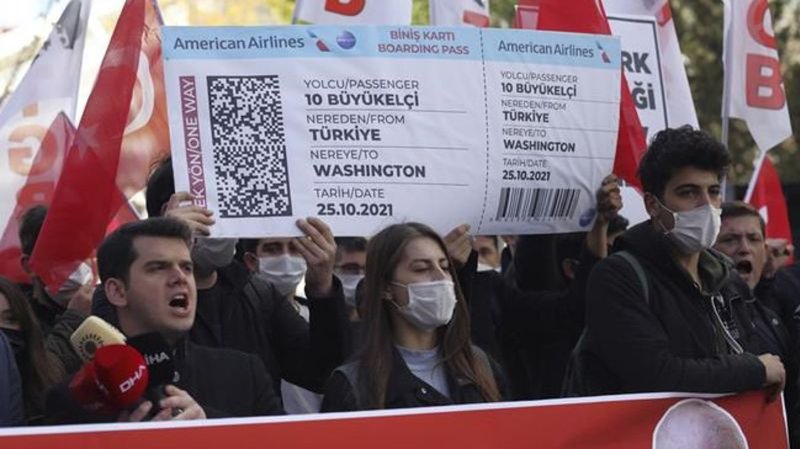
Turkey’s Erdogan lifts threat to expel Western ambassadors
ISTANBUL (AP) — Turkish President Recep Tayyip Erdogan late Monday stepped back from a threat to expel the ambassadors of 10 Western nations over their support for a jailed activist, defusing a potential diplomatic crisis.
“We believe that these ambassadors, who have fulfilled their commitment to Article 41 of the Vienna Convention, will now be more careful in their statements,” he said in televised remarks following a three-hour Cabinet meeting in Ankara.
The envoys, including those of the U.S., Germany and France, last week called for the release of philanthropist Osman Kavala, who has been in a Turkish prison for four years awaiting trial on charges many view as unfounded.
The ambassadors of the Netherlands, Canada, Denmark, Sweden, Finland, Norway and New Zealand also joined the appeal.
